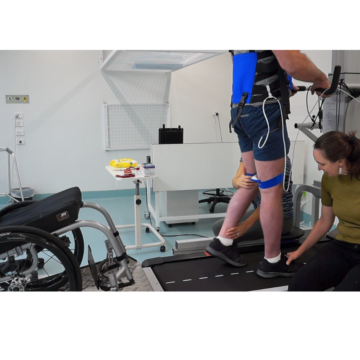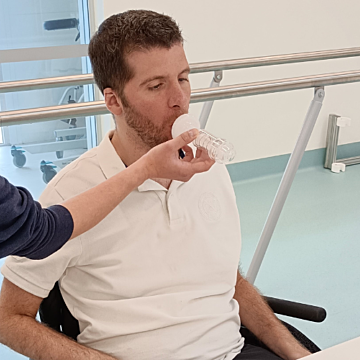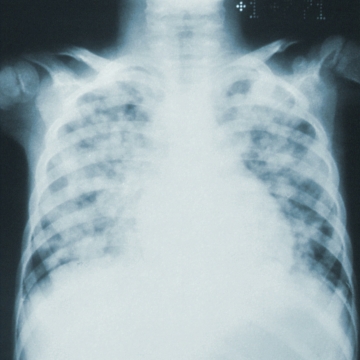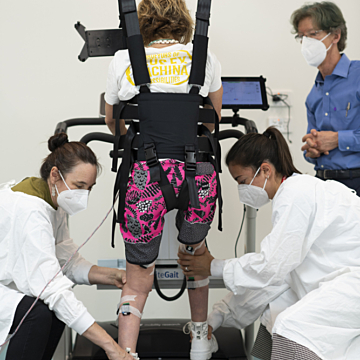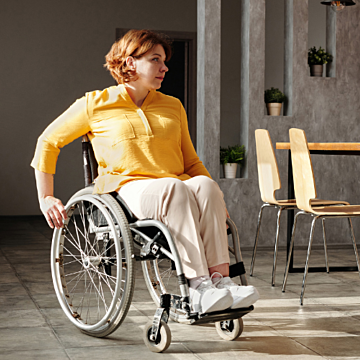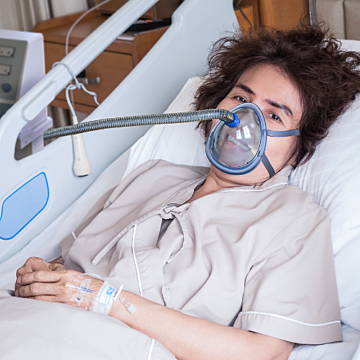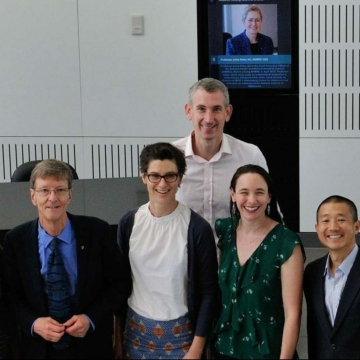Research Project

Claire Boswell-Ruys
Current Appointments
Senior Research FellowKey Research Areas
Claire Boswell-Ruys (BSc, BAppSci (Physio) Hons I, PhD) has worked in the area of spinal cord injuries for the past 20 years. She is a trained physiotherapist and completed her PhD in 2010 at the University of New South Wales. Claire’s PhD developed tools to assess sitting ability and concern about falling in people with a spinal cord injury (SCI); this Falls Concern Scale (FCS) has been translated into 9 different languages (SCI-FCS). Further, she investigated the effect of specific rehabilitation techniques on sitting ability in SCI.
Claire’s research within the spinal cord injury field has included multiple clinical trials to improve health outcomes. She has investigated the effectiveness of inspiratory muscle training (IMT) for respiratory function, breathlessness and quality of life; functional electrical stimulation for cough and respiratory function; probiotics for the prevention of urinary tract infections and bowel function; and neurostimualtion techniques to enhance muscle strength.
Claire currently works part time as a Research Fellow at the Spinal Cord Injuries Research Centre (SCIRC) based at Neuroscience Research Australia (NeuRA) and as a Physiotherapist at Prince of Wales Hospital, Randwick. Claire’s current projects investigate the effect of transcutaneous spinal cord stimulation on walking ability, acute intermittent hypoxia on muscle strength and function, and IMT on respiratory function in people with SCI. The research team at SCRIC welcome interest in student research projects and collaboration with fellow scientists.
Publications
2025, 30 Sep
Impact of respiratory muscle training on sleep disordered breathing in people with tetraplegia: A sub-analysis of a randomised controlled trial
View full preprint on https://doi.org/10.21203/rs.3.rs-7522267/v1
2025, 01 Jan
Detection and perception of inspiratory resistive loads in older adults with and without chronic obstructive pulmonary disease
View full journal-article on https://doi.org/10.1152/japplphysiol.00398.2024
2025 Jan
The effect of abdominal functional electrical stimulation on blood pressure in people with high level spinal cord injury
View full journal-article on https://doi.org/10.1038/s41393-024-01046-w
2023 Sep
Effect of respiratory muscle training on load sensations in people with chronic tetraplegia: a secondary analysis of a randomised controlled trial
View full journal-article on https://doi.org/10.1038/s41393-023-00920-3
2023, 12 Aug
Comparison of two inspiratory muscle training protocols in people with spinal cord injury: a secondary analysis
View full journal-article on https://doi.org/10.1038/s41394-023-00594-2
2022, 01 Dec
Inspiratory muscle reflex control after incomplete cervical spinal cord injury
View full journal-article on https://doi.org/10.1152/japplphysiol.00113.2022
2022, 01 Nov
The detection and sensory perception of inspiratory resistive loads in people with chronic tetraplegia
View full journal-article on https://doi.org/10.1152/japplphysiol.00064.2022
2022 Jun
Transcutaneous spinal cord stimulation combined with locomotor training to improve walking ability in people with chronic spinal cord injury: study protocol for an international multi-centred double-blinded randomised sham-controlled trial (eWALK)
View full journal-article on https://doi.org/10.1038/s41393-021-00734-1
2020 Oct
The reliability of inspiratory resistive load magnitude and detection testing
View full journal-article on https://doi.org/10.1016/j.resp.2020.103490
2020 Jun
Increased diaphragm motor unit discharge frequencies during quiet breathing in people with chronic tetraplegia
View full journal-article on https://doi.org/10.1113/JP279220
